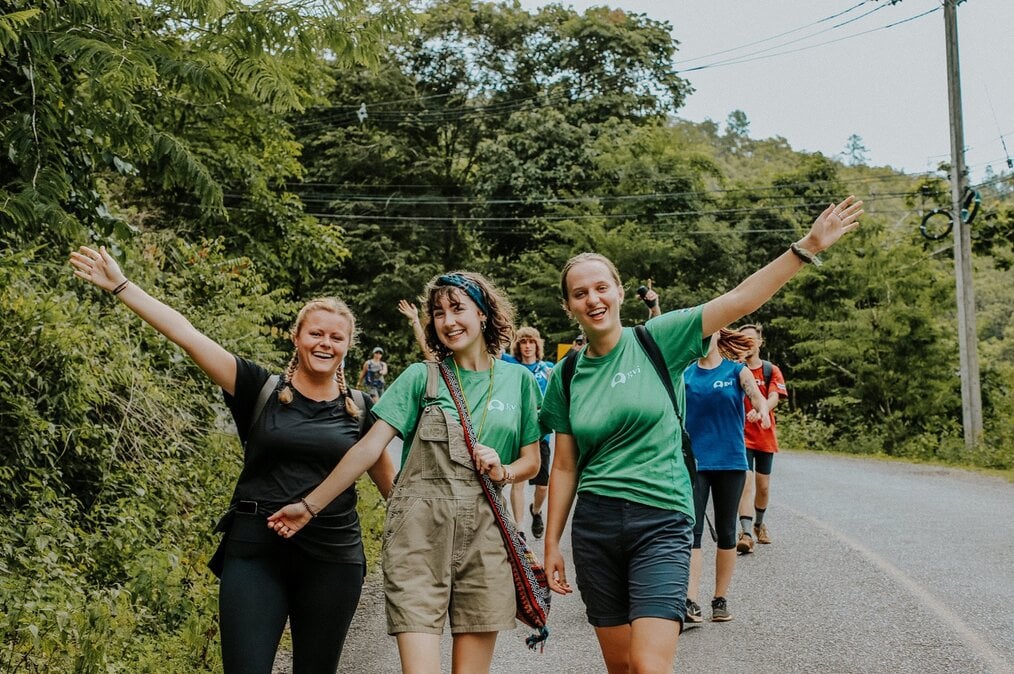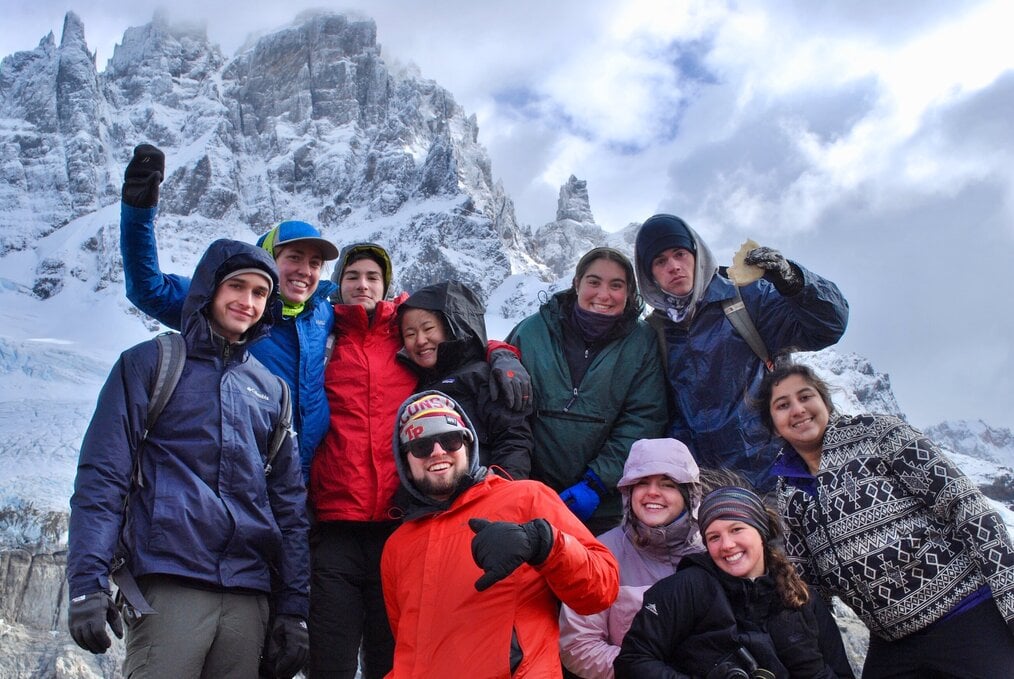
How to Talk About Your International Gap Year in Job Interviews
Gap years are a great way to explore the world, but they can be tough to explain during a job interview. Here’s what you need to know if you plan on taking a gap year before starting your career.

I'm sure many of us have sat through interviews where someone's asked us to explain why we took time off from our studies or employment. It's often an uncomfortable question because, traditionally, it has been considered taboo to take time off during one’s education or career path—even though more and more Americans are taking gap years before returning to school or starting in the workforce. According to the 2020 Gap Year Association Survey report, 40,000 Americans and Canadians take a gap year every year!
Whether you decide to volunteer in a different country, teach English, or work abroad, it’s important that you view this time as an opportunity for growth. Having a positive attitude about your experiences helps you communicate them more confidently, but it's also a way to practice talking about yourself and your skills!
Understand the role of a gap year in your life
A gap year is an excellent opportunity for self-discovery, new experiences, and life lessons. Research shows that students who take a gap year are more confident when they return to school or start their career because they have gained insight into themselves and what they want out of life while also developing skills that employers are looking for (such as adaptability and increased maturity).
A gap year can do wonders for your application, as long as you explain what it means. If you're unsure why you chose to take a gap year, or if it doesn't seem like you learned anything from the experience, reconsider taking a job interview until those questions are answered.
With these basics in mind, let's look at how to talk about your gap year during an interview:
- Talk about what you have learned: What skills did you gain while on your gap year? For example, did you learn a new language as you backpacked through Germany or experience first-hand luxury branding in France? Did you code computer software while in Brazil?
- Talk about how your experiences have helped you get to where you are now: How has taking time off improved your ability to handle stressful situations? How has traveling made you more culturally aware and open-minded as a person?
- Talk about how you have grown as a person: Describe your personal growth during the time off from school. For example, did it give you the chance to focus on yourself and your life goals? Did it build up certain important qualities, such as confidence?
Read more: The Best Gap Year Programs for 2022
Using the STAR method

Good interviewers are looking for a STAR moment. They want to know that you can tell a compelling story, and they want to hear how you've applied your skills in real-life situations.
So, what's the STAR method? STAR stands for:
- Situation: Describe the situation/challenge/problem you faced and how it affected you personally
- Task: Describe the mission or goal that resulted from this situation/challenge/problem
- Action: Explain what action(s) were taken to complete this task
- Result: Discuss the result of completing this action on an overall scale
This structure makes it easy for the interviewer to follow along and see how your experience aligns with their needs for your role—but it also gives them opportunities to ask questions about specific parts of your story and get more details than just “I worked at X company from Y time until Z time” would allow them.
It's important to practice using this format when telling stories about past projects or experiences in interviews because it's more than just an outline. By following these steps (and making sure they're clear), other interviewees will have better luck getting hired because their stories are easier for recruiters and managers alike to follow!
Let’s dive into some sample questions!
1. Why did you decide to take a gap year?

A gap year allows you to take some time off from school or work to focus your energy on personal development. This can include traveling abroad, volunteering in another country, and gaining real-world experience in the field you’d like to enter. Some people even use this time to try out different jobs until they find one that interests them the most.
The interviewer wants to know why you chose to take a gap year and why it was essential. If you can give a thoughtful response here, it shows that your decision was not made lightly and that it's part of who you are as a person. You may have several reasons for taking time off, so don't be afraid to mention all of them!
Example answer: "I decided I needed a break from school because I had always been so focused on my studies. I wanted some time away from academics to figure out what career path would be best for me, so I took time off before college."
As long as your answer is honest and well-spoken, the interviewer will understand where you're coming from!
Read more:10 Ways a Gap Year Can Help You Figure Out Your Career
3. What skills did you gain during your gap year?

Most people who take gap years aren't taking them simply because they feel like they need a break from school and work; instead, they take this time to grow in some way or another. So think about the specific skills and attributes related to how you developed during your gap year—and then connect them back to what the employer is looking for in their potential hires.
Soft skills you can gain from taking a Gap Year:
- Cross-cultural understanding and Cultural awareness
- Excellent communication
- Talented in relationship building
- Adept at negotiation
- Resourceful and independent
- Adaptability and flexibility
- Outstanding time-management
- Great money-management
- Self-direction
- Ethical awareness
- Collaboration
- Critical thinking and Problem-solving
You also need to demonstrate that your experiences have given you knowledge and skills relevant to the job.
Example response: "I volunteered at an animal shelter in Costa Rica and gained communication skills that helped build relationships with both animals and humans. This led to better putting myself out there when meeting new people on land and at sea!"
Although it’s good to give examples of transferable skills you gained from your adventures abroad, try not to spend more than 5 minutes talking about what makes the job ideal for someone who has taken time out from work or study.
Not all employers want to hear the long, drawn-out story of your adventure abroad. If I had an interview right now, I would keep my answer short and sweet—and then follow up with questions about what they thought were the most fun parts of their travel experiences too!
Read more: How to Put Your Gap Year on Your Resume
4. How did your gap year prepare you for this job?

Draw on experiences and skills you gained during your year abroad. For example, did you learn a new language? If so, highlight your fluency as an asset you'd bring to the company's international clients or markets.
Example answer: “I grew in my ability to work with people from different cultures and backgrounds. The entire experience showed me how I can be a leader and a team player.”
You want to demonstrate that this experience was not just about traveling but rather how it shaped you as an individual.
Read more: 13 Unique Gap Year Jobs Abroad
5. Can you share a challenge you faced and how you overcame it?

A very common question you may be asked is to talk about a challenge you faced during your gap year and how you overcame it. The interviewer will want to see how well you can adapt to challenges and develop a response that highlights your strengths as a future employee.
Whether you had to overcome a language barrier, had a challenging volunteer project, or even lost your backpack in a foreign country, these can all be challenges worth highlighting.
It's important to tell the story with confidence, without making excuses or blaming anyone else for your problems. Many people are afraid to talk about their gap year experiences because they're worried it could come across as bragging. That's not what you're doing here, though! You're just sharing a challenge you faced and how you overcame it.
Example answer: "Well, my biggest challenge was probably the language barrier between my host family and me. I had never been outside of the United States before, so learning to speak in Spanish was difficult at first." (You can even share that this experience helped push you past your comfort zone) "But now I feel like there's nothing I can't do!"
It's okay to be excited about overcoming these challenges!
Bonus example interview gap year questions

- What did you do with all that free time, and what did you learn from the experience?
- What are your plans for the upcoming year?
- Why did you decide to travel to these particular places for your trip?
- How has your gap year influenced your career path?
- How do the skills and experiences gained during your travels relate to those needed in this job?
- When have you taken charge of a project or situation, even when it was outside of your comfort zone?
- What did you do during your Gap Year?
Embrace your gap year!
Even if you don't have much experience in a professional setting, you can still talk about your gap year to show how it's prepared you for the career. Those who don't take a formal gap year before entering the workforce may be stretched thin between their personal and professional lives, worrying they won't have time to develop or follow through on their passions. Prioritizing self-discovery and growth through travel makes it easier to approach work with an open mind, which is an invaluable skill when facing new challenges.
Whether you took a gap year or didn't, everyone has lessons learned from life experiences that can help them grow professionally. So don't be afraid of talking about yours – you might surprise yourself!






